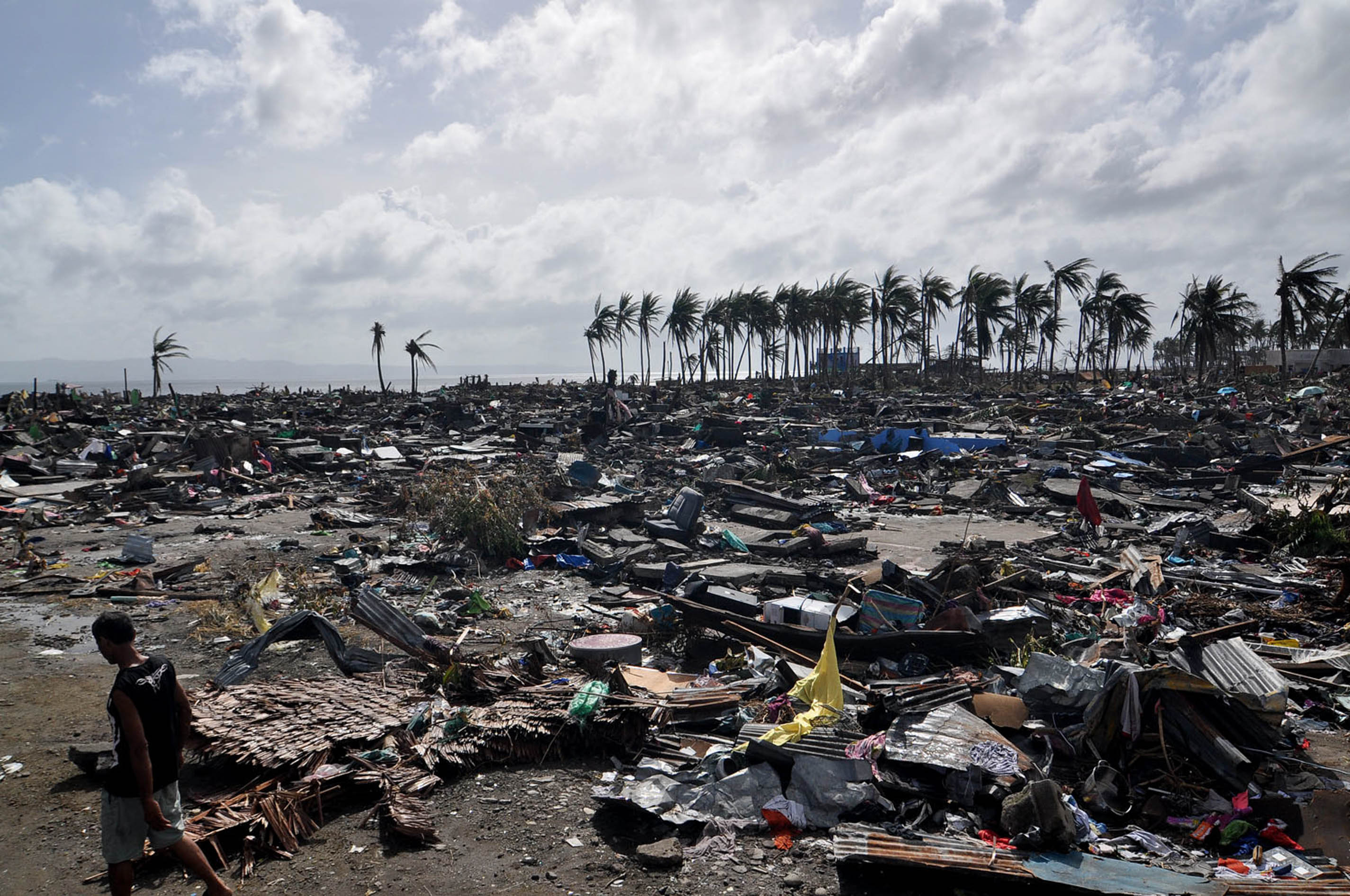Crisis preparedness low, says DILG-UNDP report

FLATTENED AND DEVASTATED. Eastern Visayas took the brunt of Yolanda in November 2013, wiping out communities and taking lives in just a few hours. FILE PHOTO FROM PHILIPPINE DAILY INQUIRER
A new report by the Department of the Interior and Local Government (DILG) and the United Nations Development Programme (UNDP) in the Philippines noted that the current policy, systems and procedures of the government in dealing with crisis, such as climate-induced disasters, are “falling short of what needs to be done in a rapidly evolving environment.”
The report titled “Decentralization, Digitalization, and Development: Strengthening Local Governance for Crisis Response, Recovery, Resilience, and the Sustainable Development Goals,” published on Dec. 1, featured key policy notes on the Mandanas-Garcia Transition, a court ruling that increased local government units’ share in national tax allotments by 37.89 percent this year.
The report noted that because of the ruling, more fiscal resources are expected to be downloaded from national to local governments, but the transition “will occur amid the prevailing need to equip [local government units] to address crises at the local level.”
A chapter on climate, environment and conflict noted a lack of preparation or mitigation measures of local governments for some human-induced disasters.
Article continues after this advertisement“While the climate and environmental disasters may have been triggered by natural hazard sources, these events need not necessarily translate to disasters if the proper responses are made in a timely manner,” the report noted.
Article continues after this advertisementIt cited Supertyphoon “Yolanda” (international name: Haiyan) in 2013 as an example of a phenomenon “when preparations were underestimated,” leading to billions of losses in livelihood and agriculture.
In such a phenomenon, the report noted that local leadership and institutions tend to “rely on national directives and planning,” due in part to local governments’ dependency on the national government for fiscal resources. “Access to resources, especially locally generated revenue, remains a major, if not the single most important constraint to local government autonomy,” the report added.
The report noted that the current national crisis management paradigm reflects a “corporate approach” that does not cater to “a rapidly evolving environment, especially in the threat assessment stage.”
With the Mandanas ruling in place, the report advised the national government to set “methodological standards” on risk assessment, response planning, management and monitoring of the crisis, as well as mitigating impacts and crafting a realistic recovery plan nationwide.
RELATED STORY:
UNDP turns over to DICT emergency response vehicles, communications gear